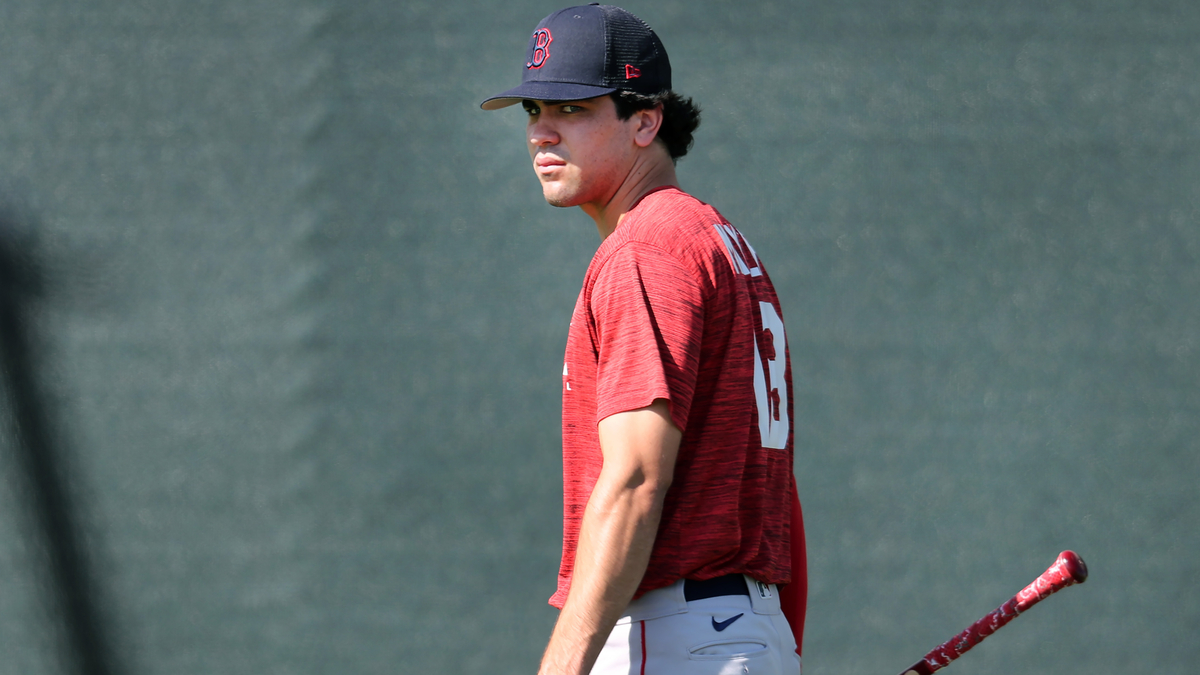Theo Epstein has devoted his life to the pursuit of new challenges. Yale. Professional baseball. Law school. Becoming the youngest GM in baseball. Ending his hometown team's legendary title drought. Exorcising the ghosts of Wrigley, too. Spearheading the changes that have made baseball watchable again.
Epstein goes somewhere, does something unprecedented, and goes somewhere else. It's a well-established pattern, so please explain what satisfaction he can possibly derive from tackling one of those items again?
If your answer is, "I don't see how he can," you now understand why it's hardly worth discussing the chances of him riding back to the rescue. This hasn't stopped a lot of breathless speculation, which is understandable from a wishing and wanting standpoint with the Red Sox in danger of finishing last for the third time in four years under Chaim Bloom. But it's not reflective of reality.
MORE RED SOX COVERAGE
Get Boston local news, weather forecasts, lifestyle and entertainment stories to your inbox. Sign up for NBC Boston’s newsletters.
Unless he buys the team outright from John Henry, color me skeptical that Epstein would entertain an offer to run the Red Sox' baseball operations again, even as part owner, a possibility blithely mentioned as if FSG hands out ownership stakes like juice boxes at summer camp.
Epstein's life seems pretty good right now. He just bought a house in Connecticut after more than a decade in Chicago, and his part-time work with the commissioner's office shepherding the rules changes that have sped up games and increased attendance has both burnished his reputation and allowed him to be home with his two sons. He has reached an enviable point in his life where he can pause the rat race. If he wants to enter the ownership ranks, that's what his 50s are for, and he's still 49. He's got plenty of time.
It's hard to imagine why he would short-circuit that bliss to rejoin a franchise he didn't leave on the best terms, and which faces serious challenges of the internal and external varieties.
It would be reasonable for him to ask what he can do running the Red Sox that he hasn't done already. Win a World Series? Check. Win another? Check. Build a farm system that left his successor, Ben Cherington, a superstar in Mookie Betts, and the homegrown core of two more champions? Check and check.
He'd also return to a team embroiled in an identity crisis. The Red Sox don't seem to know what they are right now. They're building through the farm, but it hasn't gotten them anywhere. The next step could involve spending, except ownership seems comfortable downsizing to the middle class. It could also mean trading prospects, which hasn't happened under Bloom.
Whatever they do, it had better be right, because the American League East has never been more brutal. Where once the Yankees were the primary concern, now New York is in last place and the Orioles, Rays, and Blue Jays are the class of the division and not going anywhere. The Red Sox could do everything right and still finish last.
That's partly because of the position Bloom has put them in, relying so heavily on prospects who are by no means can't-miss. Does the embattled chief baseball officer keep his job in a theoretical Epstein regime, or do the Red Sox embark on yet another GM search in what has become an every-four-years matriculation? The last time they tried to hire an overseer of baseball operations, they were rebuffed repeatedly before settling on the unproven Bloom, who has succeeded in building a better farm, but has yet to proven he can build a consistent winner.
Epstein's presence wouldn't change the mercurial reputation of ownership, which has developed a habit of jettisoning its baseball bosses at exactly the moment a candidate for the job would hope they'd show support. Perhaps Bloom avoids the fate of Cherington and Dave Dombrowski, but if he doesn't, replacing him won't be as easy as Henry and Co. snapping their fingers. All of that impatience and instability is what's known as a red flag, and it's rippling in the gale as a warning across the game.
Explain why Epstein needs any of that? He is currently being touted as a miracle worker for finally bringing the game into the 21st century with the introduction of the pitch clock. He's a legend in Boston and Chicago, former presidents routinely cite his leadership skills, and he's a surefire Hall of Famer.
The Red Sox made him famous, and they'll always be central to his identity. He can do whatever he wants next, but if his history tells us anything, it's this:
He's motivated by new challenges, not old ones.



